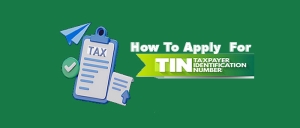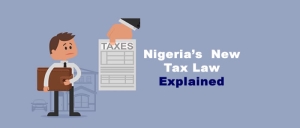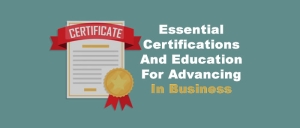
The Federal Government of Nigeria provides student loan schemes to support Nigerian students pursuing higher education. President Bola Tinubu on the month of June 2023 signed into law a bill that provides interest-free education loans for Nigerians willing to acquire tertiary education.
The Access to Higher Education Act, 2023, otherwise known as student’s loan Act, establishes an Education Loan Fund to help Nigerians fund their higher education, while they pay in instalments two years after completing their participation in the National Youth Service Corps (NYSC) program. The student loan program is administered by the National Board for Technical Education (NBTE), the National Universities Commission (NUC), and the Universal Basic Education Commission (UBEC). Here are some key details about the Federal Government of Nigeria student loan: Name of the Scheme: The student loan scheme is known as the Federal Government of Nigeria Student Loan Scheme or simply the Nigerian Student Loan Scheme.
Eligibility Criteria: To be eligible for the loan scheme, students must meet certain criteria, which may include:
• Nigerian citizenship
• Admission into a recognized Nigerian higher education institution
• Evidence of financial need
• Good academic performance
Loan Amount and Coverage: The loan amount and coverage may vary depending on the level of study and the specific program. Typically, the loan covers
• Tuition fees,
• Accommodation expenses,
• Textbooks
• And other educational expenses.
Loan Repayment: The loan is expected to be repaid by the beneficiary after the completion of their studies. Repayment terms, including interest rates and repayment period, may be specified by the government or the designated agency administering the loan.
Loan Application Process: The specific application process may vary depending on the agency administering the loan. Generally, students need to complete an application form, provide supporting documents, and submit the application to the designated agency. Detailed information and application forms can be obtained from the relevant government agency responsible for the student loan scheme.
It's important to note that the Federal Government of Nigeria student loan program is subject to specific guidelines and may undergo changes or updates over time. For the most accurate and up-to-date information, interested students should contact the National Board for Technical Education (NBTE), the National Universities Commission (NUC), or the Universal Basic Education Commission (UBEC) for guidance on the current student loan scheme and application process.
How to apply for federal government of Nigeria student loan
To apply for the Federal Government of Nigeria Student Loan Scheme, you will need to follow the application process set by the designated agencies responsible for administering the loan. The following steps can give you a general idea of how to apply:
Identify the Designated Agency: The Federal Government student loan scheme may be administered by different agencies, such as the National Board for Technical Education (NBTE), the National Universities Commission (NUC), or the Universal Basic Education Commission (UBEC). Identify the specific agency responsible for the loan scheme you are interested in.
Gather Required Documents: Prepare the necessary documents for your loan application. These may include:
• Proof of Nigerian citizenship (such as a valid passport or national identification card)
• Admission letter from a recognized Nigerian higher education institution
• Academic transcripts or certificates
• Evidence of financial need (such as a statement of income or bank statements)
• Any additional documents specified by the designated agency
Obtain Application Form: Visit the website or contact the designated agency responsible for the loan scheme to obtain the official application form. Alternatively, the application form may be available at their office or other designated distribution centers.
Fill Out the Application Form: Carefully fill out the application form, providing accurate and complete information. Ensure that all required sections are properly filled and any supporting documents are attached as specified.
Submit the Application: Submit your completed application form and supporting documents to the designated agency according to their specified submission method. This may involve submitting it in person at their office or through an online application portal, if available.
Follow Up on Application Status: After submitting your application, inquire about the application review and selection process. Keep track of any updates or communications from the designated agency regarding your application status.
List Of Bank That Offers Federal Government Of Nigeria Students Loan
the Federal Government of Nigeria Student Loan Scheme is typically implemented in partnership with various commercial banks in Nigeria. While the specific list of banks participating in the scheme may vary over time, here are some of the banks that have previously offered student loans under the scheme:
1. Zenith Bank Plc
2. Guaranty Trust Bank Plc (GTBank)
3. United Bank for Africa (UBA)
4. First Bank of Nigeria Limited
5. Access Bank Plc
6. Stanbic IBTC Bank
7. Sterling Bank Plc
8. Fidelity Bank Plc
9. Union Bank of Nigeria Plc
10. Ecobank Nigeria
Please note that the availability of student loans and participating banks may change over time. It is advisable to directly contact the banks or visit their websites to obtain the most up-to-date information on student loan offerings under the Federal Government of Nigeria Student Loan Scheme.
Who can apply?
Sections 14 and 16 of the Act explained eligible applicants and the procedures of submitting applications to the selection committees. According to the Act, only students of government-owned tertiary institutions can apply for the loan when it finally takes off. “Subject to the provisions of any other enactment, all students seeking higher education in any public institution of higher learning in Nigeria shall have an equal right to access the loans under this Act without any discrimination arising from gender, religion, tribe, position or disability of any kind,” Section 2 states. Section 23 of the Act further clarifies that “institutions of higher learning” means public universities, polytechnics, colleges of education and vocational schools established by the government. Also, to be eligible, an applicant’s income or family income must be less than N500,000 per annum.
Students must also provide at least two guarantors, each of whom must either be a civil servant of at least level 12, a lawyer with at least 10 years’ post-call experience, or a judicial officer, or a justice of peace.
Also, Section 15 of that act states that a student will be disqualified from taking the loan if they have been found guilty of examination malpractice by any school authority, or convicted of a felony or any offence involving dishonesty or fraud.
An applicant will also be disqualified if they or their parents have defaulted in respect of a student loan or any loan granted to the person, or has been convicted of drug offences.
Repayment plan
The Act did not put a cap on the amount students can access or within a period of which they must conclude repayment.
It, however, states that the repayment of the loan begins exactly two years after the completion of the participation in the NYSC programme.
A beneficiary shall remit 10 per cent of their income to the Fund at the end of every month. For self-employed individuals, 10 per cent of their total monthly profit shall be remitted as part of the repayment plans.
Meanwhile, defaulters risk a N500,000 fine, two years’ jail term or both when they fail to repay their loans.
Application Procedures:
To apply for the education loan, candidates are required to submit applications to the chairperson of the CBN-governor-headed committee through their respective banks.
The application is to be accompanied by a cover letter signed by the head of their institutions (vice-chancellors for university students, rector for polytechnic students and provost for students of colleges of education) and student’s affairs officer of the institution.
Students also submit a copy of their admission letter, at least two guarantor letters addressed to the chairperson of the committee, two passport photographs from each of the guarantors, their employer and evidence of employment. In cases where the guarantor is self-employed, their business registration with the Corporate Affairs Commission (CAC) or any other appropriate authority and their bankers, will be required.
“The Committee shall communicate to the applicant on the status of his application within 14 days of the receipt of any application,” the act states, adding that “disbursement shall be on the availability of funds.
Frequently Asked Questions About Federal Government Of Nigeria Student Loan
Here are some frequently asked questions (FAQs) about the Federal Government of Nigeria Student Loan Scheme:
Who is eligible to apply for the Federal Government student loan?
Nigerian citizens who have gained admission into recognized Nigerian higher education institutions. Students who demonstrate financial need and meet other specified criteria.
What expenses does the student loan cover?
The loan typically covers tuition fees, accommodation expenses, textbooks, and other educational expenses.
How do I apply for the Federal Government student loan?
Obtain the application form from the designated agency responsible for the loan scheme.
Fill out the form, providing accurate and complete information.
Submit the application along with the required supporting documents to the designated agency.
Which banks participate in the student loan scheme?
Participating banks may vary over time. Some banks that have previously participated include Zenith Bank, Guaranty Trust Bank, United Bank for Africa, and First Bank of Nigeria.
What is the maximum loan amount available?
The maximum loan amount can vary depending on the level of study, program, and other factors. It is advisable to check with the designated agency for the most accurate and up-to-date information.
How and when do I repay the student loan?
Loan repayment typically starts after the completion of studies. Repayment terms, including interest rates and repayment period, are specified by the government or the designated agency administering the loan.
Can I apply for the loan if I am studying abroad?
The loan scheme may primarily focus on Nigerian higher education institutions. It is best to consult with the designated agency for eligibility requirements for students studying abroad.
Can I combine the Federal Government student loan with other scholarships or financial aid?
Eligibility for combining the student loan with other scholarships or financial aid may depend on the specific terms and conditions of those programs. Consult with the relevant agencies or institutions for guidance.
What happens if I am unable to repay the loan?
Defaulting on loan repayment can have consequences, such as negative credit history and potential legal actions. It is important to communicate with the designated agency and discuss any difficulties or alternative repayment arrangements.
How can I contact the designated agencies for more information?
Visit the websites of the National Board for Technical Education (NBTE), the National Universities Commission (NUC), or the Universal Basic Education Commission (UBEC) for contact information and further assistance.
In conclusion, obtaining a student loan in Nigeria typically party of APC campaigns promises to provide loan scheme for students that want to attend higher institutions.

 .jpg)





 Workplace Soft Skills That Make You Stand Out in the Business World
Workplace Soft Skills That Make You Stand Out in the Business World  Essential Certifications And Education For Advancing In Business
Essential Certifications And Education For Advancing In Business